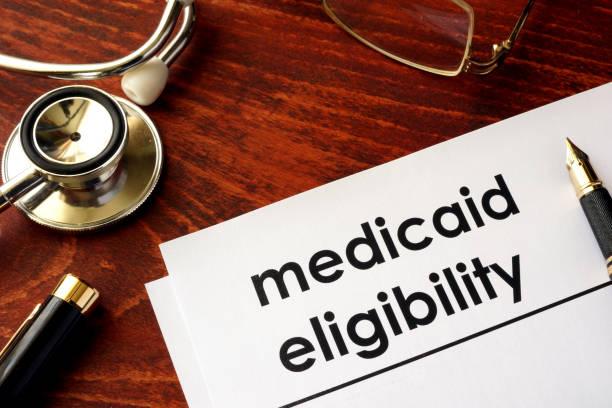PRESIDENT Donald J. Trump, who won a “trifecta” landslide victory – more like a “perfecta” for winning the electoral, popular, and ethnic votes – announced his nomination of Robert F. Kennedy, Jr., as secretary of Health and Human Services. RFK is infamous for his anti-vaccine stance, which hopefully is only his personal bias for himself, and not for the public.
Vaccines have been saving lives since it was first created by Dr. Edward Jenner in May of 1796. During this pandemic, more than 12.7 billion shots of the COVID-19 vaccines have been given safely, resulting in 63 percent reduction in the death rate around the world, literally saving billions of lives.
As of April 13, 2024, more than 7 million people in 229 countries have died from COVID-19; more than 1.2 million in the United States and 66,864 in the Philippines. In the United States, 81 percent of the population of 346,123,888, had at least one vaccination, and around 71 percent of the 116,201,488 population in the Philippines.
The 19 percent unvaccinated in the United States translates to about 67.8 million unprotected people. One unvaccinated person (a prime target of the virus) who gets infected is enough to cause a pandemic as shown in Wuhan City, China. The best scenario and the safest situation for the country is obviously for everyone to be vaccinated as early as possible and religiously follow the CDC mitigating guidelines. To achieve this epidemiologically and save the greatest number of lives, the government should implement federal mandates on vaccination and mitigating measures, no matter how unpopular this collision of civil rights versus science. When is saving the greatest number of lives not a noble objective?
RFK could be most useful in reigning in the pharmaceutical industry and put an end to its abuse, lack of transparency, and price gouging. Why drug prices in Canada are about half the price of the same generic drugs in the United States is most revealing. He could also explore the food preservatives-additives health issues. The other area is the 146-billion-dollar food supplement industry, where miracle claims and false data abound and where there is zero scientific oversight and scrutiny of the products as far as efficacy, safety, interaction, side-effects, complications, etc., are concerned. The public is left basically unprotected from corporate greed.
Hopefully, when confirmed, RFK would put aside his personal biases, follow medical science, and faithfully carry out the plans for the health of the people and the nation as envisioned by the incoming 47th president of the United States.
Marijuana dangers
In the United States alone, there are almost 62 million marijuana users, and about 18 million of them with symptoms of cannabis disorder. In the Philippines, it is around 1.8 million users among its 116 million people, with proportionate malady.
A study in the University of Montreal, Quebec, Canada, reported that “cannabis use may lead to thinning of the cerebral cortex in adolescents…The multilevel study demonstrated that tetrahydrocannabinol (THC), an active substance in cannabis, causes shrinkage of dendritic arborization — the neurons’ network of antennae that play a critical role in communication between brain cells.” This thinning “makes it harder for the brain to learn new things, interact with people, cope with situations, etc.” This research was published October 9, 2024, in the Journal of Neuroscience.
Problems associated with the use of marijuana, some fatal to users and to innocent bystanders, are mounting, since it was legalized. As a society, we need to seriously rethink our approach to the introduction of any new recreational drug that can potentially be harmful to our health and to society.
Tobacco alone has killed an estimated 100 million in the 20th century and projected to kill about 1 billion in the 21st century.
REM sleep – vital
Rapid eye movement (REM) sleep is a normal part of our sleep cycle, and each of the 4-6 cycles per night cycle lasts about 80-100 minutes. The first REM lasts for just a few minutes and gets longer with each subsequent cycle. The total may be half an hour of REM sleep, when dreams usually occur. During REM sleep, our breathing, heart rate, blood pressure, and brain activity all increase. While our eyes are closed, our eyes move rapidly. Our muscles in our arms and legs are unable to move, preventing us from acting out our dreams as we experience them. REM sleep decreases from 50 percent in the newborn to 20 percent among those age 20 and above and down to 17 percent by age 80.
The benefits we get from REM sleep: Mood regulation, improved learning and memory, brain development, and protection against dementia. For every 1 percent reduction in REM sleep, there is a 9 percent increase in the risk of dementia.
To improve sleep, it is best to stick to regular bedtime and wake-up time schedules, even on weekends or on vacation, and to avoid a long nap, watching television, especially violence, or any excitement before bedtime. Tablets and cellphones emit blue lights that interfere with sleep. Limit caffeine to a cup a day, 2 maximum, and alcohol intake to one, as they suppress REM sleep. Take a warm shower, listen to soft music, stretch, and read. Exercise slightly decreases REM, so exercise in the morning, preferably outside. In general, regular exercise increases the amount of restorative sleep, which boosts mood and energy. Sleeping pills may not be safe for some people, especially the elderly.
Social media ban
The prime minister of Australia, Anthony Albanese, recently announced his proposal to ban all social media for children under the age of 16. If approved, these platforms will have 12 months to implement blocking measures or face potential fines against them but not the users. He argued the ban is needed “due to social media’s harmful effects on young people’s mental health.” Around “95 percent of teens use social media, spending an average of 4.8 hours a day, and 41 percent of them rate their mental health as poor or very poor.” Indeed, a courageous noble move. This is preventive medicine, pro-active and pre-emptive.
* * *
The opinions, beliefs and viewpoints expressed by the author do not necessarily reflect the opinions, beliefs and viewpoints of Asian Journal, its management, editorial board and staff.
* * *
Philip S. Chua, MD, FACS, FPCS, a Cardiac Surgeon Emeritus based in Northwest Indiana and Las Vegas, Nevada, is an international medical lecturer/author, health advocate, medical missionary, newspaper columnist, and chairman of the Filipino United Network-USA, a 501(c)3 humanitarian foundation in the United States. He was a recipient of the Indiana Sagamore of the Wabash Award in 1995, presented by then Indiana Governor, U.S. senator, and later a presidential candidate, Evan Bayh. Other Sagamore past awardees include President Harry S. Truman, President George HW Bush, Muhammad Ali, Astronaut Gus Grissom, scientists, and educators.
(Source: Wikipedia). Websites: Today.SPSAtoday.com; Amazon.com (“Where is My America?”); Email: scalpelpen@gmail.com.





